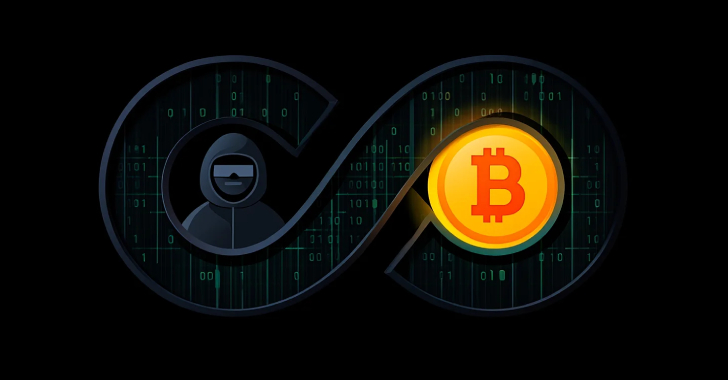
Rethinking PCI DSS Compliance for Cryptocurrency Transactions
The world of finance is undergoing a seismic shift with the rise of cryptocurrencies. These digital assets, powered by blockchain technology, offer a new way to store and transfer value, challenging traditional financial systems. As more businesses and individuals embrace cryptocurrencies, a pressing concern emerges: how to ensure the security of cryptocurrency transactions in line with industry standards like PCI DSS (Payment Card Industry Data Security Standard).
PCI DSS compliance has long been the gold standard for securing payment card data, primarily in traditional financial transactions. However, as cryptocurrencies become more prominent, it’s imperative to rethink how PCI DSS can adapt to this evolving landscape. In this article, we’ll delve into the challenges and potential solutions for achieving PCI DSS compliance in the context of cryptocurrency transactions.
Understanding PCI DSS
Before we dive into the complexities of PCI DSS compliance in cryptocurrency transactions, let’s briefly recap what PCI DSS is all about. PCI DSS is a set of security standards designed to ensure that all companies that accept, process, store, or transmit credit card information maintain a secure environment. These standards aim to prevent data breaches and protect sensitive cardholder information.
PCI DSS compliance involves a range of requirements, such as network security, access control, and regular security testing, all intended to safeguard financial transactions. Traditionally, these requirements have focused on payment card data, but as cryptocurrency gains ground, we must consider how they apply to digital assets.
Cryptocurrency Challenges
Cryptocurrencies operate on a fundamentally different paradigm from traditional payment methods. They are decentralized, trustless, and pseudonymous. While these attributes provide benefits in terms of accessibility and security, they also present unique challenges for PCI DSS compliance:
- Anonymity: Cryptocurrency transactions do not inherently link to personal information, making it difficult to apply some PCI DSS requirements, such as verifying the identity of the transaction parties.
- Decentralization: Cryptocurrencies lack a centralized authority, which means there’s no single entity responsible for maintaining security standards. This decentralization makes enforcement of compliance more complex.
- Irreversible Transactions: Once a cryptocurrency transaction is confirmed, it is almost impossible to reverse, unlike traditional payment methods where chargebacks are possible. This raises the stakes for security.
- Emerging Technologies: The rapid development of blockchain and cryptocurrency technology means that compliance standards must adapt quickly to stay relevant.
Reimagining PCI DSS for Cryptocurrency
To tackle these challenges and ensure PCI DSS compliance in cryptocurrency transactions, several strategies must be considered:
- Traceability: Implementing mechanisms for traceability within cryptocurrency transactions is crucial. This could involve enhancing the Know Your Customer (KYC) process for cryptocurrency users, linking wallet addresses to real identities where possible, and creating transparent transaction histories.
- Third-Party Services: Engaging third-party services that specialize in cryptocurrency security can help bridge the compliance gap. These services can provide monitoring, auditing, and compliance solutions tailored to the unique features of cryptocurrency.
- Smart Contracts: Utilizing smart contracts on blockchain platforms can help automate and enforce compliance rules within cryptocurrency transactions. These contracts can trigger actions based on predefined conditions, adding an extra layer of security.
- Security Tokens: Introducing security tokens, which represent real-world assets on the blockchain, can enable the application of traditional PCI DSS principles to cryptocurrency transactions. These tokens are subject to the same regulations and security measures as their traditional counterparts.
- Education and Training: As the cryptocurrency landscape evolves, it’s essential to invest in educating stakeholders about the risks and best practices for secure cryptocurrency transactions. This includes both merchants and consumers.
Regulatory Frameworks
Governments and regulatory bodies worldwide are actively working on implementing regulatory frameworks for cryptocurrencies. While these frameworks may vary from one jurisdiction to another, they aim to provide clarity and ensure compliance with existing financial regulations. Integrating these emerging frameworks with PCI DSS can help create a standardized approach to cryptocurrency security.
The Role of Blockchain Technology
Blockchain, the underlying technology of cryptocurrencies, can also play a significant role in ensuring compliance. Blockchain’s immutable ledger and transparency can enhance security by providing a verifiable record of all cryptocurrency transactions. Additionally, blockchain can facilitate compliance audits, simplifying the process for merchants and regulators alike.
The Importance of Continuous Monitoring
One of the fundamental principles of PCI DSS compliance is continuous monitoring of security measures. This principle remains relevant in the context of cryptocurrency transactions. Real-time monitoring of wallets, addresses, and transaction patterns can help identify and respond to suspicious activity promptly.
Case Study: Compliance in Cryptocurrency Exchanges
Cryptocurrency exchanges are a critical link in the cryptocurrency ecosystem, serving as platforms for buying, selling, and trading digital assets. These exchanges must balance user privacy and security while adhering to compliance requirements. Here’s how PCI DSS can be applied in this context:
- User Verification: Cryptocurrency exchanges can implement stringent KYC processes to verify the identity of users, similar to traditional financial institutions.
- Secure Storage: Exchanges should employ secure, multisignature wallets for storing cryptocurrencies. This aligns with PCI DSS requirements for secure data storage.
- Transaction Monitoring: Real-time transaction monitoring can detect and prevent fraudulent activity, just as PCI DSS mandates monitoring for unauthorized access in traditional payment systems.
- Regular Auditing: Cryptocurrency exchanges should undergo regular security audits to ensure compliance with both established regulations and emerging standards.
Conclusion
Cryptocurrency transactions are reshaping the financial landscape, offering unprecedented opportunities and challenges. To ensure the security of these transactions, it’s essential to rethink how PCI DSS compliance can be adapted to this evolving landscape. While there are unique challenges, such as anonymity and decentralization, innovative solutions, including traceability, smart contracts, and security tokens, can bridge the gap.
As governments and regulatory bodies continue to develop frameworks for cryptocurrencies, integrating these with existing compliance standards like PCI DSS can create a more cohesive and standardized approach to cryptocurrency security. The role of blockchain technology in enhancing transparency and facilitating compliance audits should not be underestimated.
In this ever-evolving world of finance, staying ahead of the curve in terms of security is paramount. By rethinking PCI DSS compliance for cryptocurrency transactions, we can ensure that this exciting new frontier remains both accessible and secure for all stakeholders.
Contact Cyber Defense Advisors to learn more about our PCI DSS Compliance solutions.





